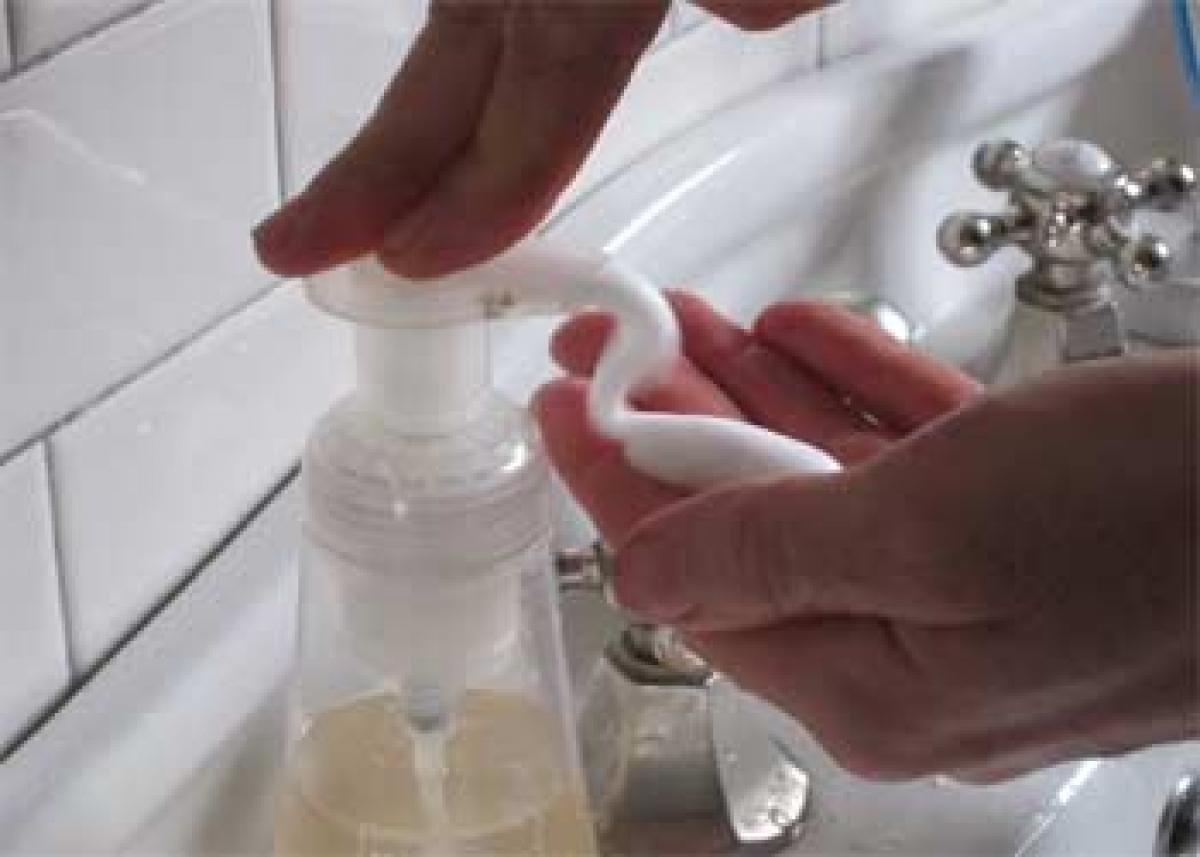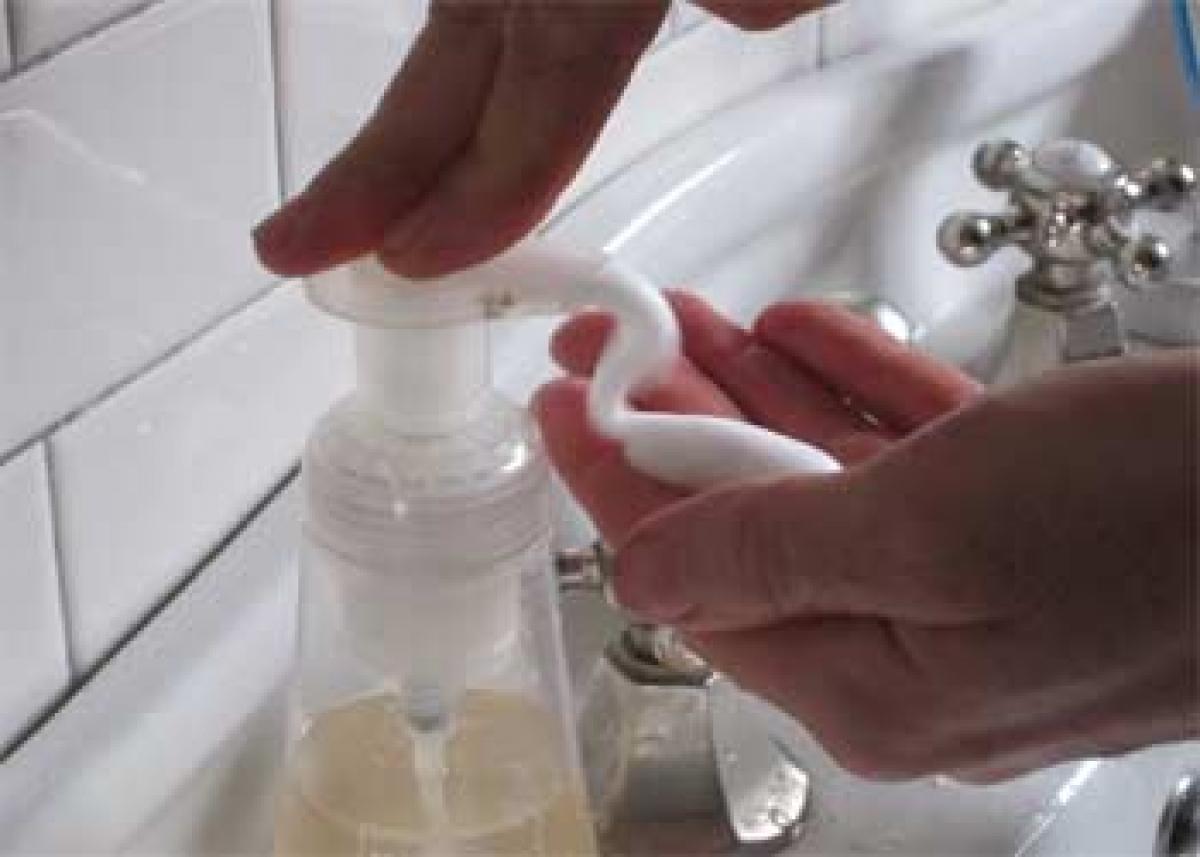Dhote jaao? Dhote jaao?

Dhote jaao? Dhote jaao. Using antibacterial soap for hand-washing is no more effective than using plain soap, scientists have discovered. \"Advertisements and consumer belief regarding the effectiveness of antibacterial soaps needs to be addressed,\" said study lead author Min Suk Rhee of Korea University in Seoul.
 Regular soaps work just as well as antibacterial ones
Regular soaps work just as well as antibacterial ones
Using antibacterial soap for hand-washing is no more effective than using plain soap, scientists have discovered. "Advertisements and consumer belief regarding the effectiveness of antibacterial soaps needs to be addressed," said study lead author Min Suk Rhee of Korea University in Seoul.
The researchers examined the effectiveness of triclosan, one of the most commonly used ingredient in antibacterial soaps. Use of triclosan has come under the scanner as previous studies have linked it to antibiotic resistance and hormone problems. The researchers first examined the bactericidal effects of triclosan in soaps against 20 bacterial strains.
In the second experiment, they compared the ability of antibacterial and non-antibacterial soap to remove bacteria from human hands, by using 16 healthy adult volunteers. The results of the study indicated that there is no significant difference between the effects of plain soap and antibacterial soap when used under 'real life' conditions.
The scientists recreated the conditions of human hand washing by exposing the bacteria for 20 seconds at 22 degree Celsius (room temperature) and 40 degree Celsius (warm temperature) to triclosan with a concentration of 0.3 per cent - the maximum allowed by law.
There were significantly great effects after more than nine hours, but not during the short time required for hand washing. But use of triclosan has come under the scanner as studies have linked it to antibiotic resistance and hormone problems. (The study was published in the Journal of Antimicrobial Chemotherapy.)








